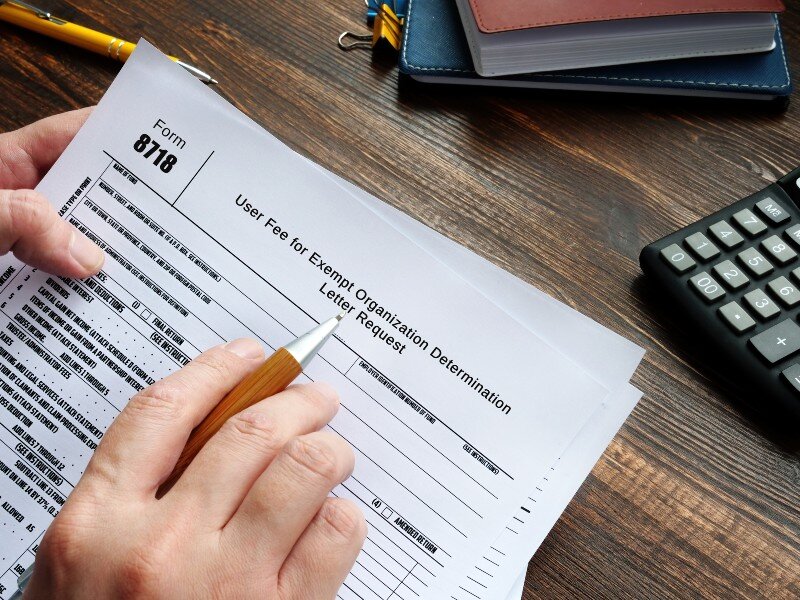
Are you in the midst of a sale of your home? Homeowners looking to sell their Florida property will need to consider the various taxes necessary for the sale and any possible tax exemption. You’ll see that there are numerous taxes to pay, such as capital gains tax, property taxes, and transfer taxes.
You will need to budget for these payments before completing the home sale, especially since you’ll have to pay off the rest of your mortgage from the sale price. To learn more about paying taxes on selling a house, read the information below. Let’s get started!
Paying Taxes on a House
When selling a primary residence, taxpayers will need to cover a variety of different taxes, especially if they gain more capital assets from the home sale. Essentially, when homeowners sell their place at a profit and the house has appreciated from the original sale, they will need to pay a capital gains tax on the profit.
Calculating the capital gains tax on your real estate transactions can get complex. It mostly depends on:
- Income tax rates
- Whether the homeowners are married couples or single
- The length of time the sellers owned the property
- Whether the house is a principal residence, second home, or an investment property
The tax will apply only to the profit of the sale. For instance, if you sold the home for $300,000 and initially bought the place for $250,000, then only $50,000 will get taxed as a capital gain. Yet, you may get a tax break from the capital gains tax. You can get a tax exemption of up to $250,000 for single filers or $500,000 if filing a joint return when selling a primary residence.
You will also need to pay a prorated property tax to cover your part of the tax until the closing date of the sale. The property tax ends up being part of your closing costs when selling a house. Once your home gets sold, the buyer has to cover the property tax rate for the rest of the year.
Do You Have to Pay Tax on the Profit of a Home Sale?
As previously explained, you may get a tax exemption on as much as $250,000 on the profit of your home sale or up to $500,000 if filing jointly as a married couple.
Therefore, you may not have to pay tax on the entirety of your home sale profit. However, you will still have to pay a capital gains tax on profit above that amount of $250,000 (or $500,000 for a joint married filing status). Yet, there are specific conditions you will need to meet as a seller to qualify for the capital gains tax exemption.
You will need to own the home for at least two years and it needs to be your primary residence. Out of the last five years, you need to have lived in that residence for at least two of those years. You don’t necessarily need to live there for a two-year period, as you can reside there for a year, rent it out, and then move back in for another year.
You can speak with your real estate agent to gain more information about tax filing requirements for the capital gains tax. You may not need to pay for a taxable gain unless your profit goes beyond $250,000 for single tax filers.
Are There Tax Exclusions for Home Sellers?
The profits from the sale of a home may end up subjected to capital gain taxes. The profits are those from the new purchase price that go beyond the homeowner’s original purchase price. The federal capital gains tax income rates range from 0 percent to 15 percent or even 20 percent.
Your tax cost basis depends on your income. Home sellers who are single filers and make an income of $40,400 or less will have a 0 percent capital gains tax. Therefore, they will have a tax exclusion. Also, married couples filing jointly will need a household income of $80,800 or less to gain the tax exclusion.
Those making an income of $40,401 to $445,850 will have a 15 percent long-term capital gains tax rate while those making more than $445,850 face a 20 percent tax rate. When filing jointly, the 20 percent tax rate applies to couples with a household income of $501,601 or more.
Therefore, those with an ordinary income will either face a 15 percent tax rate or a capital gains tax exclusion.
Essentially, the long-term capital gains tax rate depends on your tax bracket. Essentially, you can have a capital gains tax exclusion if you meet the above conditions for residency. However, with real estate prices soaring, you may still have to pay capital gains tax on any profits above $250,000 or $500,000.
Long-time property owners who have owned homes for 20, 30, or even 40 years may see much higher profits from recent home sales. These profits are likely to lead to a capital gains tax beyond that of one-quarter of a million dollars.
However, you can make home improvements on the house if you exceeded the tax exemptions and owe a capital gains tax to the IRS. Specific home improvements can cut profits from the original selling price. These capital improvements can include landscaping work, room additions, and swimming pool constructions.
How to Qualify for a Tax Break
To reduce your tax bill, you will need to qualify for a tax break. That is more likely if your house underwent depreciation. So, if you underwent capital loss due to low market value, you can maintain a tax-free home sale, at least when regarding the capital gains tax.
Whether you live in California, New York, Florida, or elsewhere, you can still qualify for at least eight tax breaks as a homeowner. First, you can deduct your mortgage interest up to $750,000 from your mortgage loan. Yet, married people filing separately can each deduct up to $375,000 from the mortgage loan.
The second tax break includes tax-deductible mortgage insurance payments if you put a down payment of less than 20 percent of the house’s sale price. Further, if you paid discount points to cut the interest rate on your home loan, you can deduct those points and get a tax break.
You can also deduct state and local property taxes on your tax return. Low-income, first-time house buyers may qualify for a mortgage credit certificate program. They can claim a tax credit to cut their taxes by up to $2,000.
You can also deduct interest from home equity loans or home equity lines of credit. However, you would have to use those loans or lines of credit to construct or significantly enhance your real estate property.
Medically-necessary home improvements, like support bars, are also tax deductible. Lastly, self-employed workers can deduct home office expenses if they maintain a home office as their principal place of business.

Do You Report Home Sales on a Tax Return
You should report the home sale on a tax return to the IRS using Form 8949: Sale and Other Dispositions of Capital Assets. There are three conditions under which you will need to report the sale or exchange of your primary residence. These conditions are:
- You’ve made a capital gain from the sale and cannot qualify to exclude all of the profit
- You have a capital gain and have chosen not to exclude it
- You were given a Form 1099-S
Capital Gains Taxes on Home Sales
The capital gains tax on home sales depends on the profit you’ve made from the sale. If you’ve made capital gains above $250,000 (or $500,000 when filing jointly), you won’t get to exclude those extra profits. You will need to report those extra profits to the IRS when filing your tax return for the tax year you sold your house.
The amount you pay will depend on your tax bracket and whether you’re filing a single return or jointly as a married couple.
Calculating Capital Gains Tax
If you make a household income between $40,401 to $445,850, you will have to pay a 15 percent tax rate on the capital gains tax. Therefore, you can calculate the capital gains tax on the profit you make from the home sale price.
Let’s say you bought your house originally for $200,000. Then, many years later, you sold your place for $500,000. You can qualify for a tax exemption of up to $250,000. Yet, that leaves $50,000 of which you need to pay a capital gains tax. Therefore, you will need to calculate 15 percent of $50,000. The result is a capital gains tax payment of $7,500.
Conclusion
Paying taxes on selling a house often involves short-term capital gains taxes, property taxes, transfer taxes, and more for Florida residents. However, you can qualify for certain tax exclusions and may not have a capital gains tax on the entire profit from your home sale. You may also qualify for numerous tax breaks or tax deductions.
If you’re looking to sell a house fast in Tampa, you should consider seeking out cash home buyers in Florida. We buy houses Orlando locals adore, so contact us as soon as possible.

 Call Us!
Call Us!